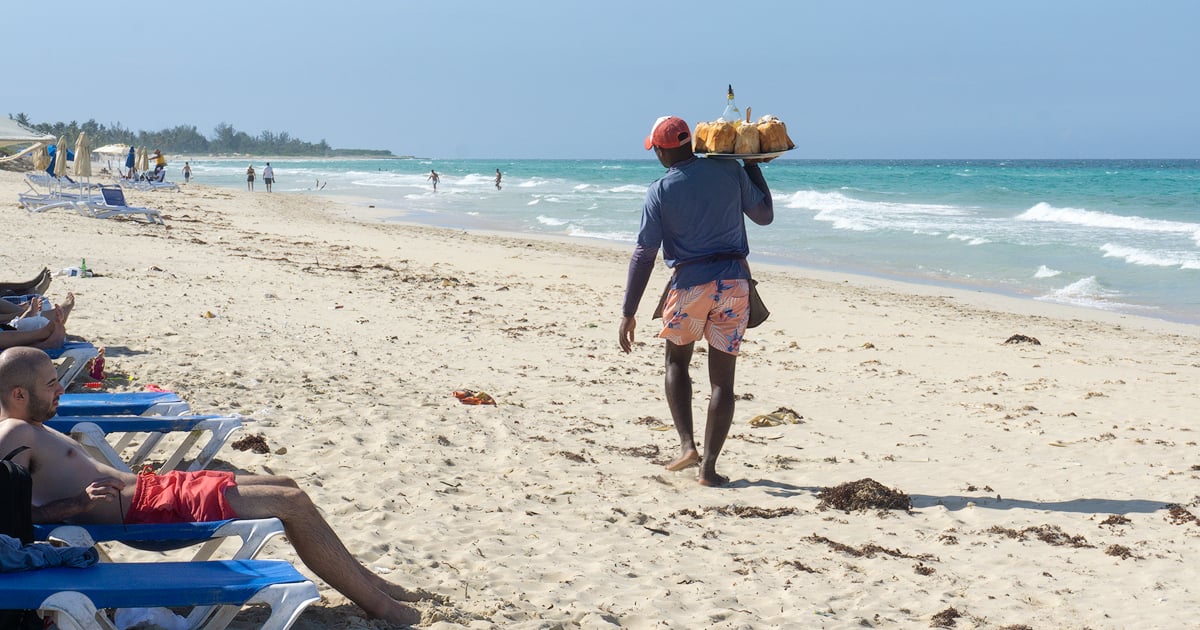Once a vital driver of the Cuban economy, the tourism sector is expected to continue its downward spiral into 2025, as acknowledged by the Cuban regime this Monday. Official forecasts reveal that the upcoming year will be even more challenging than 2024, with an anticipated 2.6 million international tourists—a figure that falls short by 100,000 compared to the already unmet target for this year, as reported by EFE news agency.
During the Tourism Commission session of the National Assembly of People's Power (ANPP), Tourism Minister Juan Carlos García Granda openly discussed the harsh realities facing the industry. He highlighted several factors contributing to the sector's struggles, such as financial constraints, supply chain disruptions in hotels, loss of skilled personnel, U.S. sanctions, and a troubling decline in the destination's perceived safety—once a strong selling point for Cuban tourism.
The first ten months of 2024 saw Cuba welcoming just 1.85 million international visitors, a decrease of 6.5% from the same period the previous year, according to the National Office of Statistics and Information (ONEI). This confirms that the goal of reaching 2.7 million tourists this year, already revised down from an initial target of 3.2 million, will not be met. García anticipates the year closing with approximately 2.2 million foreign visitors, underscoring a significant slump in the sector.
The repercussions of this crisis are profound, as tourism has traditionally been a major source of foreign exchange earnings for Cuba, surpassed only by professional services and remittances. However, current figures are far from the 4.6 million tourists recorded in 2018 and the 4.2 million in 2019, prior to the COVID-19 pandemic, as noted by EFE.
The drop in visitor numbers is evident across nearly all traditional markets such as Canada and Spain, with only Russia and Mexico showing increases. This trend starkly contrasts with other Caribbean destinations like Punta Cana in the Dominican Republic and Cancún in Mexico, which are experiencing record visitor numbers in the post-pandemic era.
With the tourism sector still in turmoil and the regime lacking clear solutions, projections for 2025 depict an economy mired in ongoing uncertainty and stagnation. The Cuban regime also announced on Monday a projected economic growth rate of just 1% for the year 2025. According to Economics and Planning Minister Joaquín Alonso Vázquez, this growth forecast is based on the anticipated recovery in tourism, increased export revenues, and the revival of productive and industrial activities, alongside the stabilization of the National Electric System (SEN), as reported by the state-run Cubadebate.
Moreover, Vice President Salvador Valdés Mesa acknowledged the severe deterioration of living conditions in the country's rural areas, yet emphasized the need to uphold the "achievements of the Revolution." He stated, "We must first and foremost recover the great work of the Revolution in the fields and mountains of the country," seemingly overlooking how the energy crisis, resource shortages, and economic challenges spurred by his government exacerbate the daily struggles faced by farmers and rural communities.
The government's second-in-command referenced health and education as other "achievements of the Revolution." However, he admitted that the situation for rural residents "has suffered much deterioration."
Impact of Tourism Crisis on Cuban Economy
What factors are contributing to the decline in Cuba's tourism sector?
Multiple factors are affecting Cuba's tourism sector, including financial issues, hotel supply chain disruptions, loss of skilled workforce, U.S. sanctions, and a decline in the perceived safety of the destination.
How does Cuba's projected tourism for 2025 compare to pre-pandemic levels?
The projected 2.6 million tourists for 2025 is significantly lower than the 4.6 million tourists in 2018 and 4.2 million in 2019, before the COVID-19 pandemic.
How is the tourism crisis impacting Cuba's economy?
The decline in tourism is deeply affecting Cuba's economy, as it has traditionally been a major source of foreign exchange, only surpassed by professional services and remittances.
